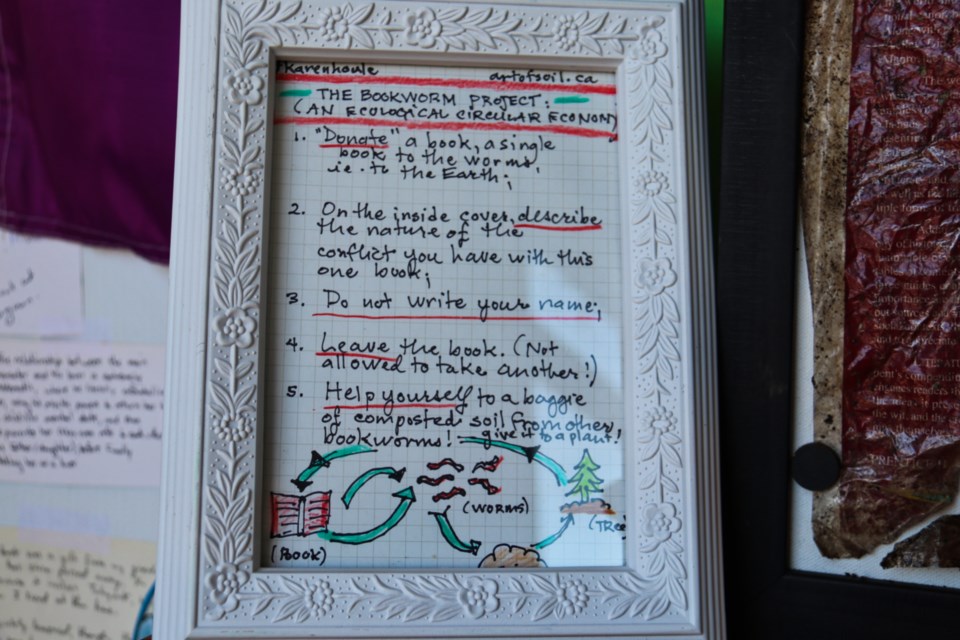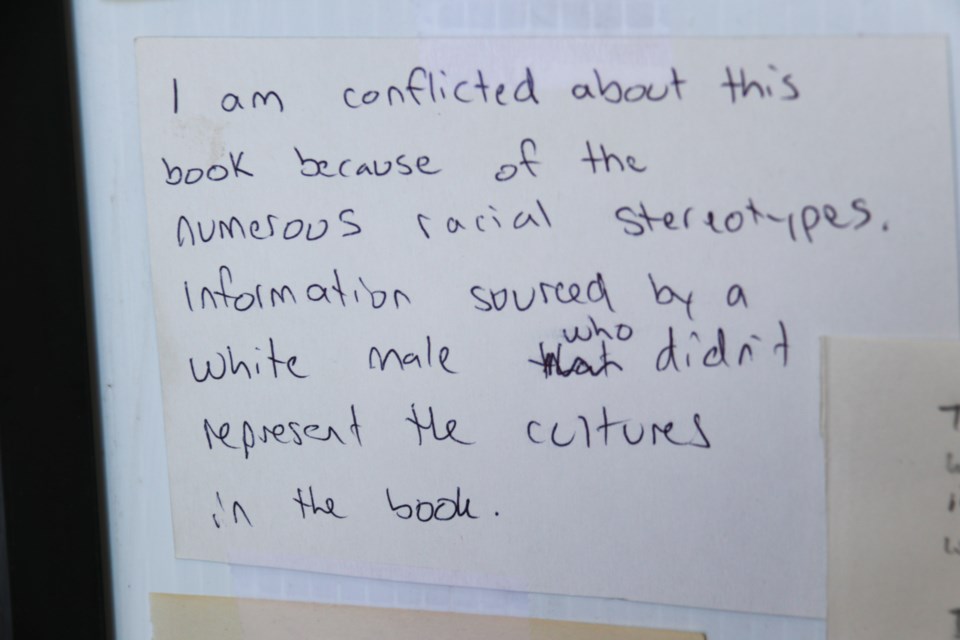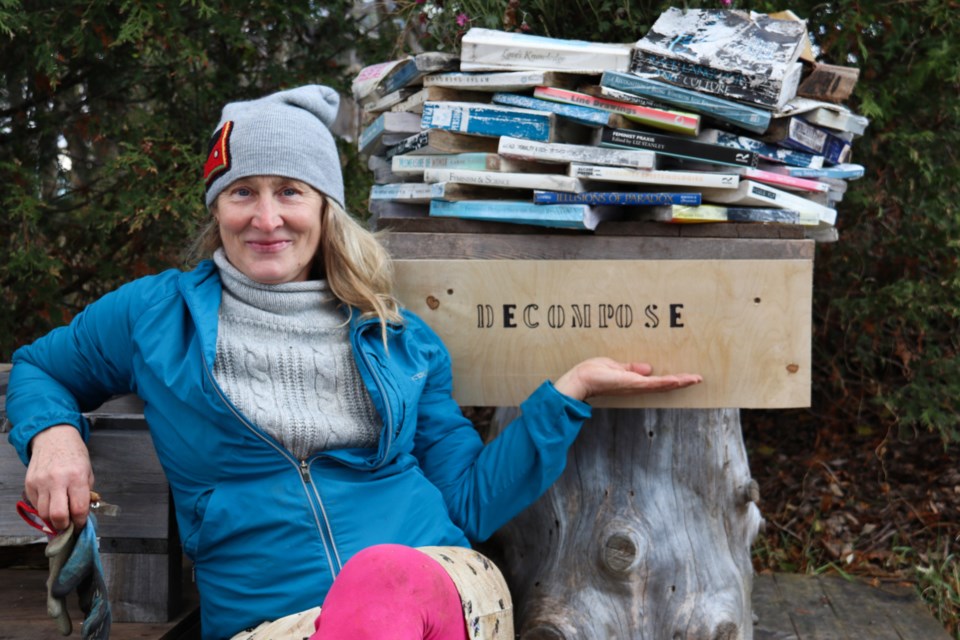A retired University of Guelph professor and avid composter is taking the phrase ‘book worm’ to a whole new level with her latest project.
Karen Houle, who can often be found in the Two Rivers Community Garden, has set up a station in the Double Rainbow Cafe in the Ward where people can feed their unwanted books to her worms.
It’s an initiative she first started in January, loosely calling it the Bookworm Project. It ran until May, with one book being donated each month. The cover of each book would be displayed with an anonymous note about why the person who donated the book had a conflicting relationship with it.
Now with a bigger and more permanent set up in the cafe, she’s hoping more people will be inspired to donate their books – or start their own book worm movement.
 Among the Bookworm station is a bucket of compost to show what the books will eventually become, and in exchange for “surrendering a book to ecology,” as Houle puts it, you can take some compost home.
Among the Bookworm station is a bucket of compost to show what the books will eventually become, and in exchange for “surrendering a book to ecology,” as Houle puts it, you can take some compost home.
It typically takes about six months for a regular book to fully decompose, and a year for larger volumes.
The idea for the project initially came to her a few years back after one of her colleagues died suddenly, leaving thousands of books behind.
“I literally saw people just putting all her books in the garbage,” she said. “I remember thinking, she was a really committed thinker, and these were special. I found it very sad.”
So she started to wonder: what else could be done with books when we’re finished with them?
“You can sell them at second hand stores; you can give them away. Lots of profs leave them behind. And then the graduate students have these like, yucky collections of old books they have to deal with,” she said.
“As an environmentalist, I started to think about maybe fun and creative ways that we could work with books, because books were all trees, and we don’t really tend to treat them that way at the end of their lives,” she said.
Feeding them to worms made sense as an alternative, since Houle is always interested in what worms can eat.
She has her own worm farms, and will feed them things like popsicle sticks or compostable cups to confirm they are indeed compostable and to see how long it takes to decompose.
“So then I thought ... the books should be able to be eaten by the worms. How long will it take? Why don't I kind of advertise it as a funny project, where people can surrender a book that they have (that) they want to get rid of?”
Sometimes reading or remembering a book can be a negative experience, and we can become stuck in that negativity, she said.
She often gets books that people read and loved as children but later were horrified to find the book was filled with racist stereotypes or sexist language, for example.
“This project is also partly a way of giving people a path forward to release that negativity into something a little bit comical, creative, but also, then it’s going to make soil. I can’t think of anything better," she said, noting  why you take issue with the book is an important step.
why you take issue with the book is an important step.
“You surrender a book – it's anonymous, I want people to be able to be honest – and you write on the inside what the nature of the conflict was with this particular book, and then other people will read it,” she said, adding that it’s often a moving experience.
Houle emphasized, however, that she isn’t telling people to get rid of their books.
“That would be terrible,” she said. “But … in my own experience, there’s always a couple books that you have that you kind of don’t want to have, but you don’t want to get rid of. Those are the ones that people can give to the worms.”
It’s not the same as book burning, either: instead of destroying a book, or throwing it out, you’re making something new, giving it a new life cycle.
“It’s a positive thing,” she said. That’s pretty rare to take something that’s negative and be able to make it into a positive.”
